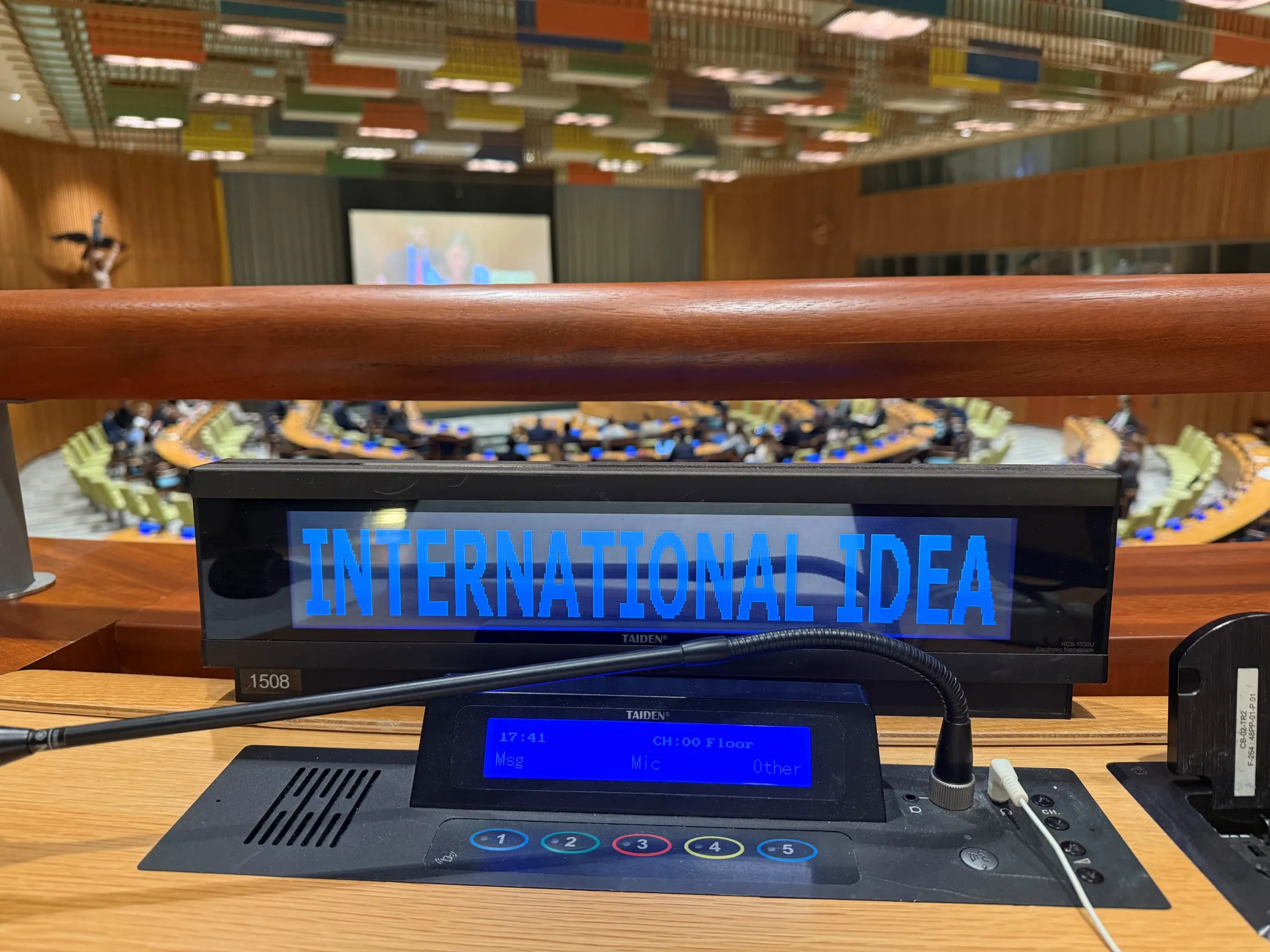High-Level Dialogue on Peace and Security in Africa

High-Level Dialogue on Peace and Security in Africa
25 June 2025, Trusteeship Council Chamber
Statement by International IDEA
Excellencies,
Democracy is essential for achieving enduring peace and security in Africa. The continent’s most intractable armed conflicts are rooted in political governance challenges, with the ongoing civil war in Sudan and the Ethiopia-Tigray war of 2020-22 as two leading examples. As the African Union Peace and Security Council has highlighted, governance deficits are also a key factor behind the spate of military coups observed recently, especially in the Sahel. Ending and preventing these armed conflicts requires courageous and forward-thinking democratic leadership.
To this end, International IDEA works with African stakeholders to build resilient and sustainable democracies, including by helping the African Union Commission to understand the political contexts in which civil wars occur, how contested political transitions ignite new conflicts, and how democratic governance deficits exacerbate state contestation and destabilization.
International IDEA commends the AU’s commitment to reduce and mitigate the risk of armed conflict. These efforts are guided by a set of norms and policies, including Agenda 2063, the Masterplan on Silencing the Guns, the African Peace and Security Architecture, and several declarations against Unconstitutional Changes of Government. Notable advances include the creation of the Africa Peace Fund, which has already supported small but meaningful disbursements to de-escalate crises. If expanded and maintained, this Fund will pave new avenues for self-sustaining peacekeeping.
Nonetheless, funding shortfalls remain one of several reasons why AU peace missions struggle to fulfil their mandates. The prevailing reliance on a small number of donors to fund most AU peace activities is an additional vulnerability. In this context, the adoption of UN Security Council Resolution 2719 (2023) represents a crucial step forward by providing a gateway for enhanced financial backing.
To fully capitalize on this opportunity, the AU must overcome internal capacity gaps pertaining to both peacekeeping and upstream conflict prevention, including support to democratic governance. Tackling these structural and systemic challenges requires revitalized UN support and clearer implementation strategies.
Excellencies,
There is growing recognition in Africa and globally that peace in Africa constitutes a global public good. This new vision necessitates a more holistic multilateral approach incorporating democratic governance as well as climate resilience, gender equality, food security, digital equity, and energy sufficiency into peacebuilding efforts. This multilateral approach to African peace and security agendas should be accompanied by reforms in the United Nations Security Council to better represent African interests and agency.
Finally, democratic governance must be inclusive. The active involvement of women and youth is not merely an ideal – it is a strategic necessity. Prioritizing gender equality and youth participation in Africa’s peace structures and processes is crucial for ensuring legitimacy, sustainability, and innovation in conflict reduction and conflict resolution.
Democracy is a foundational driver of peace in Africa. It must be deepened through institutional reform, strengthened multilateral cooperation and inclusive participation. Only then may Africa prosper in a future of peace, security, and democracy for all.
Thank you.